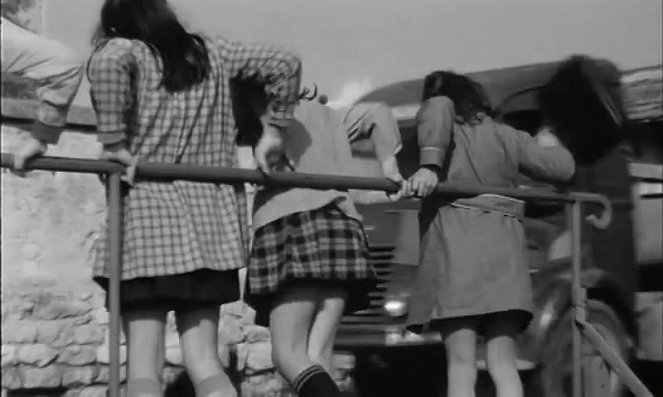Rendező:
Robert BressonForgatókönyvíró:
Robert BressonOperatőr:
Ghislain CloquetZeneszerző:
Jean WienerTartalmak(1)
A tizenéves Mouchette élete borzalmasan nehéz. Kegyetlen, alkoholista apja elhanyagolja, anyja haldoklik. Egy nap a vihar elől menekülve Mouchette találkozik Arsène-nel, az agresszív orvvadásszal... (Cinemax)
Recenziók (2)
A live rabbit. A dead rabbit. Such are the films of Robert Bresson. And in spite of that, they are as complicated as life and as mysterious as death. In Mouchette, he takes the theme of an individual who doesn’t fit into the system in the direction of greater naturalism (if I’m not mistaken, he shows blood for the first time). The titular girl character is unable to stand up for herself. So she runs away. She flees the dysfunctional society, she escapes from the pressure exerted by the institutions (family, school) that fail to find understanding for her lack of restraint in order to find common ground with a man living on the fringe. A long night-time conversation changes her. It changes her understanding of herself, which ironically leads to even more severe social ostracization. Going back is no longer an option for her. The film does not convey what’s important through words, but through the details that surround them. Furious stomping in mud as an expression of futile resistance. Hopeless acceptance of a physical attack, which transforms into a somewhat desperate embrace and the only sign of the possibility to establish contact with another human being. A rare shot when for the first time Mouchette isn’t looked down on, but rather looks at the self-confidence that she has gained… The girl’s story is cruel, but Bresson manages to view it with empathy while maintaining his ascetic approach. Without forcing anything. As life runs, as death comes. 80%
()
When introduced on television, Mouchette was characterized as a gloomy metaphor about a society from which God disappeared. A casual, but also a deeper look at the world today confirms that the countries from which God disappeared are not only winning in terms of living standards but also in terms of happiness and contentment index, unlike those where God is still housed wherever you look. The countries where God returns after the era of secularization signal worsening living conditions and security situations. Just like Diary of a Country Priest, Mouchette is also a portrayal of the main character's social isolation and his feelings of loneliness and lack of understanding. Both of my previous encounters with the works of Robert Bresson led me to the realization that he comes from such different ideological positions, that we would probably have a difficult time agreeing even on the weather. I also have difficulty with Bresson's austere form of his works - dramatic tension is foreign to him, and he deliberately avoids emotions and film effects. Yet I cannot deny his extraordinary sensitivity to the cinematic image. He is one of the directors who can speak through imagery, and dialogues only play a peripheral role. For his excellent camerawork alone, Bresson effortlessly deserves three stars. Overall impression: 65%.
()

